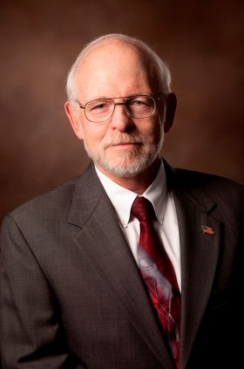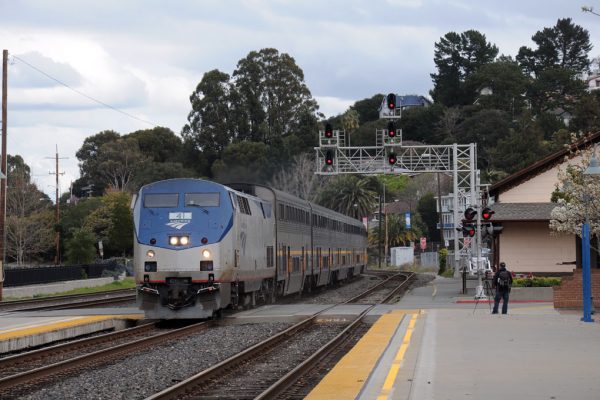Echoing what he has said at other Martinez meetings, Martinez Police Chief Manjit Sappal told the Park, Recreation, Marina and Cultural Commission said Wednesday that homelessness is not illegal.
But certain activities, including public drunkenness, aggressive panhandling, urinating and defecating in public and misusing drugs, are, he said.
And if the public sees someone misbehaving, that needs to be reported to police, not posted on social media, where officers may not notice the posting for days or weeks.
However, dealing with one of the places the homeless gather, the Martinez Waterfront Park, adds another complication to the jobs of Sappal and his officers. East Bay Regional Park District takes precedence, and Martinez codes can’t be enforced there.
Officers can enforce county and state laws, Sappal said.
Sappall and Public Works Maintenance Superintendent Bob Cellini described some of the challenges they have had in assuring appropriate maintenance and public safety in the city’s parks, at the request of the Commission who in April heard a resident, Bill Nichols, say he’s tired of seeing needles, feces and litter in the park.
Commissioners have heard other complaints, that residents fear using the park’s picnic areas, and homeless people are camping out or living in vehicles in the parks.
Sappal not only experiences the situation as the head of the city’s law enforcement department, but also as a father. He and his wife received a call from his daughter’s teacher. Normally children who tour the Contra Costa County Court House also visit Waterfront Park. But the teacher was so concerned about people acting undesirably in the park that she asked whether the side trip should be canceled.
Homeless people aren’t the only ones who are causing problems, Sappal said Wednesday. Youth and young adults also congregate “off the beaten path,” and engage in a variety of activities inappropriate for a public park.
Others drive recklessly through parks, he said.
But gates may not be the answer, Sappal said. Such barriers, locked when parks are closed, would deny admittance to emergency responders – police, firefighters and paramedics on an ambulance.
“It’s not practical,” he said.
Instead, both he and Cellini suggested good maintenance in the parks, clearing them to give patrolling officers a clear line of sight, and the addition of better lighting.
Cameras would be another favored addition, but Sappal said those are expensive, although cheaper portable cameras are an option he is considering, if they can meet appropriate specifications for court use.
In addition to meeting with the Park District police, Sappal said he wants a meeting with the city’s homeless outreach CORE team and representatives of the courts system.
Another problem is the department is understaffed. That’s common to many Bay Area law enforcement agencies. However, the City Council recently agreed mid-contract to increase officers’ pay in hopes of retaining the existing staff and attracting new members.
The city is divided into quadrants so that patrol officers don’t have to go so far to respond to a call. That cuts response time, Sappal said.
But the city’s four areas still are large. “I have only so many officers,” he said.
Until the force’s numbers increase, Sappal will be hard-pressed to assign an officer full time to homeless outreach or to put some officers on the department’s new electric bicycles – fast enough so that if officers are called away, they don’t necessarily have to attach the bikes to a patrol vehicle before responding to a call. They can cycle there.
If someone sees a car in a park after it’s closed, or if that vehicle has been there for some time, the observer should call police, he said.
Sappal said he already has spoken with the East Bay Regional Park District Police about troubles in Waterfront Park. “I believe in working cooperatively,” he said.
The city’s public works department has seven workers and four supervisors to deal with a variety of tasks for the city, Cellini said. They’ve formed a new two-person tree crew, and some will be getting groundkeeping training this year. They empty 450 garbage containers twice a week, not just in public parks but in smaller areas that have been given to the city.
The crews have to manage irrigation in the parks that don’t have automated systems.
Public Works has a $1.6 million budget, of which $1.1 million is spent on salaries and benefits and $525,000 on operations. Of that, at least $300,000 is spent on utilities. That leaves the department with about $125,000 for its supplies, from weed abatement chemicals to garbage bags. That part of the budget hasn’t increased much in the past 11 years, he said.
They receive citizen complaints by telephone, emails and sometimes through direct contact with employees, he said. Supervisors meet daily to set priorities for those complaints, with public safety getting the top priority.
Work orders are generated and remain active until the assignment is finished, and if the assignment started with a citizen complaint, that person is called once the job is done.
The newly-reworked Field 3 that will be home to the Martinez Clippers professional baseball team is being maintained by a contractor, whose cost is being picked up by the ball club.
That contractor may be asked later to look at other fields, Cellini said. Eventually, he said, his department would like a dedicated groundskeeper for Waterfront Park.
He agreed with the police chief that gates weren’t practical options. At one time, Rankin Park had both a gate and a caretaker. “But it’s not practical to lock parks,” he said, because that would impede emergency vehicles and fire engines.
In other matters, the Commission agreed that Foster Family Network and Martinez Early Childhood Center could use different portions of Rankin Park without paying the user fee, although they will be asked to put down the usual security deposit for their respective organizations’ picnics.
The Commission also set June 16 as the date for a retreat at Martinez Senior Center to discuss several topics, including an analysis of the Commission’s duties and how recommendations are sent to the City Council.
The panel also agreed to visit several city parks and the Martinez Library as the first portion of meetings from June to September.



